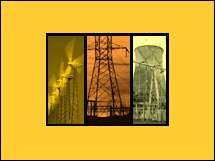|
What should business do about global warming? Economics - and public relations - are encouraging the nation's biggest corporations to embrace eco-friendly initiatives. Some are paying attention.
SAN FRANCISCO (FORTUNE) -- The chief science correspondent for NBC News, Robert Bazell, had a great line Thursday night when Brian Williams asked him if it was fair to say the debate had ended on whether or not global warming exists and if human beings are the cause. You could find someone who believes the earth is flat and put them together with another person and have a debate on it, Bazell said. But that wouldn't make the earth flat.
Okay, so the case is closed on if there's such a thing as global warming. (Reactionary flat-earthers should feel free to stop reading here. The rest of this discussion won't interest you.) The question now becomes what to do about it. Everyone's got a role to play here. You could start by seeing the film about Al Gore's climate-change slideshow, An Inconvenient Truth. If you haven't given much thought to the subject, Gore's presentation will seriously freak you out. He's got such passion on the subject that he clearly has researched so thoroughly and over such a long period of time that if you're even remotely sympathetic to Gore you'll wish this was the guy who showed up for the 2000 presidential campaign. At the movie's Web site, www.climatecrisis.net, there's something called a carbon calculator. It's a little vague, but you can use it to see the greenhouse gases you personally are responsible for contributing to the environment. (Gore says he and his wife Tipper have pledged to be "carbon neutral." He takes a lot of airplane flights he's going to have to offset somehow. But that's his pledge.) If the problem truly is to be addressed, though, corporate America is going to have to get into the game. My colleague Marc Gunther details in his column the risks to companies if they ignore society's expecations of how their ethical behavior. (Corporate America's hidden risks) Meanwhile, I've been collecting examples of specific actions the business world is taking - or at least say they are taking. Some are good ideas, others aren't, but at least they're coming up with ideas. And that's better than the companies that are doing nothing. Take Weyerhaeuser. It is trumpeting its plan to reduce greenhouse gases by 2020 to 40% below their 2000 levels. The paper maker freely admits that its motive is economic. It's trying to reduce costs and its reliance on oil by increasing its use of biomass instead of natural gas and something called bunker oil. This will be a major investment for Weyerhaeuser (Charts). Boilers cost hundreds of millions of dollars, which is why it's a multi-year commitment. There's no reason, of course, for Weyerhaeuser to take out a national advertising campaign to brag about what it's doing for the environment. But given that the company has taken its knocks in the past, it probably deserves a pass now. You can read about Weyerhaeuser's overall sustainability plan here on its Web site. Wal-Mart also is showing how one very big company can make a difference, regardless of whether it has its eye on public relations or on helping the environment. The New York Times reported recently that Wal-Mart (Charts) is going beyond requiring its suppliers to conform to certain environmental standards. Now Wal-Mart is asking its employees to do the same. The plan includes such simple measure as encouraging employees to use light bulbs that require less energy. Sounds simple, but if 1.3 million Wal-Mart workers do it, a lot of energy will be saved. Even investors are getting into the act. Earlier in June a group comprised mostly of state pension plans wrote the Securities and Exchange Commission asking that public companies be required to disclose what impact climate change is having on their business. This is a good example of a suggestion that could yield tremendously valuable information - or merely be a PR stunt. Either way, it furthers a discussion that simply has to happen in the business world. (Read their letter.) Speaking of discussions, at Fortune's Brainstorm conference in Aspen, Colo., this week, I'm moderating a panel on this very topic. It will include a former administrator of the EPA, two leading environmentalists, the producer of Al Gore's movie and the mayor of Denver. I've told them I want to hear their suggestions of what we all should do about global warming. In the meantime, I'd like to hear from you. Do you have specific, concrete ideas about what individuals and businesses should be doing? Send them my way at alashinsky@fortunemail.com. _______________________________ |
|

